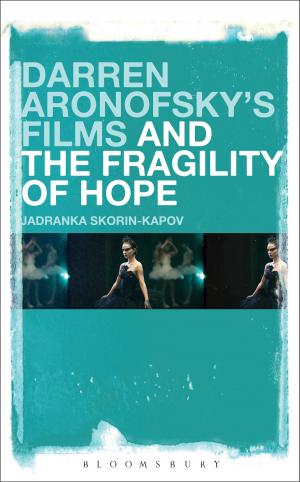Philippe Grandrieux
Sonic Cinema
Nonfiction, Entertainment, Music, Theory & Criticism, History & Criticism, Reference, Performing Arts| Author: | Associate Professor Greg Hainge | ISBN: | 9781628923155 |
| Publisher: | Bloomsbury Publishing | Publication: | February 23, 2017 |
| Imprint: | Bloomsbury Academic | Language: | English |
| Author: | Associate Professor Greg Hainge |
| ISBN: | 9781628923155 |
| Publisher: | Bloomsbury Publishing |
| Publication: | February 23, 2017 |
| Imprint: | Bloomsbury Academic |
| Language: | English |
Philippe Grandrieux is one of cinema's only living true radicals and feted as one of the most innovative and important film makers of his generation. His consistently controversial work remains, however, relatively unknown outside of the international art film festival circuit. In this volume, the first book-length study of the work of Grandrieux in any language, Greg Hainge provides an overview and critical analysis of Grandrieux's entire career during which he has produced works for television, video installations, photography, performance pieces, documentary films, short films and prize-winning feature films. As well as providing an overview, the book argues that a critical appraisal of his work necessarily leads us to problematize many of the critical orthodoxies that have been formed in recent times, to reject the concept of a haptic cinema and to supplant this instead with the idea of a sonic cinema.
Philippe Grandrieux is one of cinema's only living true radicals and feted as one of the most innovative and important film makers of his generation. His consistently controversial work remains, however, relatively unknown outside of the international art film festival circuit. In this volume, the first book-length study of the work of Grandrieux in any language, Greg Hainge provides an overview and critical analysis of Grandrieux's entire career during which he has produced works for television, video installations, photography, performance pieces, documentary films, short films and prize-winning feature films. As well as providing an overview, the book argues that a critical appraisal of his work necessarily leads us to problematize many of the critical orthodoxies that have been formed in recent times, to reject the concept of a haptic cinema and to supplant this instead with the idea of a sonic cinema.















